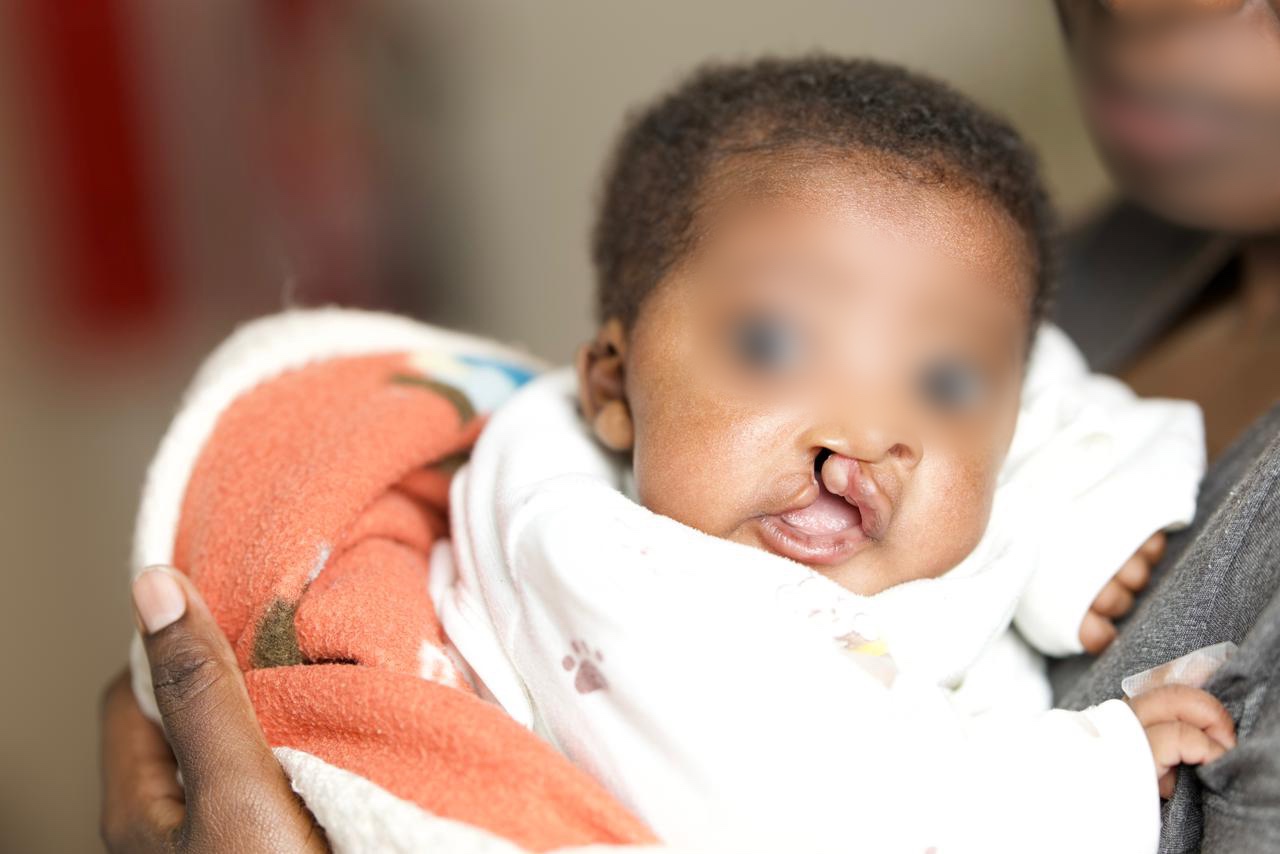Heartbroken mothers face the struggles of breastfeeding babies with cleft lips

Joyce daughter's weight became a constant worry, leading to frequent hospital visits.
When Joyce, not her real name, first held her daughter, a wave of shock washed over her. The sight of her newborn baby with a severely cleft lip and palate broke her heart.
A cleft lip is an opening or split in the upper lip that occurs when the developing facial structures in an unborn baby don't close completely. A cleft lip may be unilateral or bilateral. A baby with a cleft lip may also develop a cleft in the roof of the mouth.
More To Read
- Surviving the next pandemic could depend on where you live
- WHO urges countries to protect health budgets amid aid reductions
- Understanding cleft lip: The long road of multiple surgeries to a smile
- Turkana moves to safeguard health with bold One Health Bill
- Genetic tests for cancer can give uncertain results: new science is making the picture clearer to guide treatment
- What chaos at the US CDC could mean for the rest of the world
According to the National Institute of Dental and Craniofacial Research, a cleft lip can range from a small slit to a large split extending from the lip into the nose, occurring on one, both sides or in the middle. Similarly, a cleft palate may affect the front, back, or both parts of the palate. Some babies are born with either a cleft lip or a cleft palate, while others have both conditions.
Children with these conditions may experience difficulties with eating and breathing, and as they grow older, they may encounter delays in speech and language development. They are also more susceptible to ear infections, hearing loss, and dental problems.
"When the doctors showed her to me, I was absolutely terrified." It felt like my world had come to a standstill. Trying to breastfeed was heartbreaking. She struggled to latch, and milk would trickle from her nose," Joyce told the Eastleigh Voice.
The local nurses, unprepared for such challenges, added to Joyce's distress. "I was deeply traumatised. Eventually, the nurses suggested using a syringe until we could find the specialised bottle they recommended. Since we couldn't afford it, I had to express milk and heat it over firewood when we got home. Occasionally, the milk would become tainted, causing her to cry out of hunger. I felt helpless, not knowing if she was getting enough," said Joyce.
However. her daughter's weight became a constant worry, leading to frequent hospital visits. "She was often underweight and needed constant care. Finding a solution was a relentless struggle. Some said we had to wait six months before addressing her condition."
Despite tirelessly visiting public hospitals in Embu, Joyce faced repeated reschedulings and bureaucratic hurdles. She went a whole year without breastfeeding.
"Baby formula was too expensive for us, so we switched to porridge when my milk dried up. Although I felt disconnected from my baby, some suggested goat milk as an alternative. Fortunately, the Belarus Medical Centre corrected my baby's cleft lip.
Typically, doctors recommend cleft lip correction within the first year of a baby's life, ideally between 2 months and their first birthday. Similarly, doctors typically perform surgery to repair a cleft palate before the child reaches 18 months of age. As children grow older, they may face additional challenges or health issues.
After the corrective surgery, her baby now eats normally, and their quality of life has improved. Her sole regret is that an earlier correction could have spared her baby many months of agony.
 A file image of a baby with a cleft lip. (Photo: Handout)
A file image of a baby with a cleft lip. (Photo: Handout)A file image of a baby with a cleft lip. (Photo: Handout)
Genetic factors, including gene defects inherited from parents and genetic syndromes involving multiple symptoms or defects, can cause cleft lip or palate, according to research.
About 30 per cent of cleft defects are linked to genetic syndromes such as Waardenburg, Pierre Robin, and Down syndrome. Additionally, maternal factors such as poor health during early pregnancy, alcohol consumption, smoking, or certain medications can increase the risk of these conditions.
Mothers who give birth to a child with a cleft lip often encounter stigma and shame associated with the condition, with some labelling it a curse. This was the situation Sarah (not her real name) faced.
"When my husband saw our fourth child, he became immediately depressed and refused to even hold the baby. Later, my in-laws bluntly told me that my child was a bad omen and suggested I should discard him."
Sarah was heavily burdened by stress, compounded by ongoing feeding challenges that troubled her every minute of the day.
"I was fortunate to receive a donated feeding bottle at the hospital where I gave birth, but despite this, milk would occasionally come out of the baby's nose. He would often choke and never seem fully satisfied; most of the time, he cried inconsolably."
The relentless crying exacerbated the situation at home, further destabilising her already fractured household. With the birth of a child with a cleft lip, hope seemed lost until a doctor at one of the clinics suggested Belarus Hospital to her.
"After my baby underwent corrective surgery at three months old, I've noticed significant improvements, even in how my husband now holds him. Relatives who once blamed me and called my baby a curse are starting to come around."
Meanwhile, the Ministry of Health inaugurated World Breastfeeding Week at Lang'ata Women's Prison, initiating efforts to raise awareness about breastfeeding. This year's global observance spans from August 1 to August 7, 2024, themed "Closing the Gap: Breastfeeding Support for All," highlighting a strong commitment to inclusivity and ensuring that every breastfeeding mother receives adequate support nationwide.
Research by Lancet indicates that breastfeeding annually prevents approximately 823,000 child deaths, particularly for infants under six months old. It reduces mortality from infections by 88 per cent among infants under three months and prevents 72 per cent of hospital admissions due to diarrhoea and 57 per cent due to respiratory infections. Furthermore, breastfeeding promotes cognitive development and reduces the risk of childhood overweight and obesity.
 A file photo of a baby in hospital. (Photo: Canva)
A file photo of a baby in hospital. (Photo: Canva)A file photo of a baby in hospital. (Photo: Canva)
Top Stories Today












































